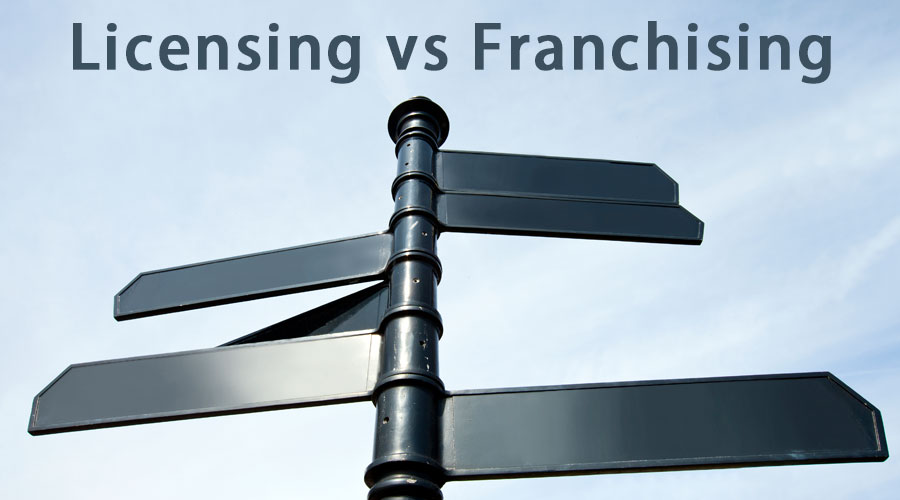Being a franchisee vs. a licensee with an existing firm describes the rights you have obtained from that company.

Being a franchisee vs. a licensee with an existing firm describes the rights you have obtained from that company. The existing firm may have set requirements for how your business should function and how it should portray its brand, depending on the sort of agreement.
Table of Contents
What Exactly Is a Franchisee?
Franchisees operate their own companies but have acquired the rights to use the trademarks of a well-known company:
The business model
Trademarks
Trademarks.
A franchise agreement often has detailed responsibilities, such as the items and services that the franchisee may provide. As a consequence, the franchisor and franchisee frequently have a tight connection. Franchise options include Domino’s Pizza,and 7-Eleven. Additional examples may be found on the website of the International Franchise Association.
The Benefits of Franchising
Some of the benefits of launching a franchise include:
Owning your own business while receiving backing from a well-established organisation.
Because they leverage an existing brand, most franchises have greater success percentages than independent enterprises.
Franchisors often teach you how to manage a company based on their pre-existing business model.
Franchisors guarantee that franchisees are not competing with one another by providing exclusive territorial rights.
The Drawbacks of Franchising
The following are some downsides of launching a franchise:
The franchisor’s franchising code of conduct, disclosure standards, guidelines, and franchise agreement must all be followed by franchisees.
Franchisees must attend and pay for any training required by the franchisor.
Franchisees must pay recurring fees to the franchise company and the group marketing fund for the life of the franchise business.
Franchisees are limited in their ability to govern their businesses.
What Is Included in a Franchise Agreement?
Franchise agreements are often more complicated than licence agreements and are subject to more stringent rules.
A licence to operate in line with the franchise’s business model, trademarks, and branding.
Restriction on running the franchise inside a certain region.
A list of the supplies that the franchisee must get from the franchisor or its authorised suppliers.
The provisions of the franchise agreement, including any renewal rights and restrictions that must be satisfied in order to renew.
Any cancellation provisions, including any circumstances allowing the franchisee to terminate the agreement.
The conditions under which the franchisor may cancel the agreement. The franchisor normally has the authority to acquire the franchisee’s company assets and take over any leasing obligations as part of the termination.
Any resale terms, including any requirements for selling the franchise and any transfer costs that must be paid.
What Exactly Is a Licensee?
Licensees have acquired the right to utilise the physical assets of an established firm, such as goods, brands, trademarks, or logos. Unlike a franchise, however, the licensor has no say in how a licensee conducts business or builds its own brand. A licence deal can include a professional sports club offering a firm the right to make and sell merchandise using the team’s emblem.
The Benefits of Licensing
The following are some of the benefits of product licencing:
Licensees are not required to disclose anything, but they must follow any contract laws.
Licensees have more freedom in providing goods or services, but they must be careful not to tarnish the licensor’s reputation with those products or services.
Because there is less involvement from the licensor, licensees have more freedom in how they manage their businesses.
Licensees may offer licenced items or services in addition to their other products or services.
The Drawbacks of Licensing
Some of the drawbacks of product licencing are as follows:
Licensees get no assistance in advertising or running their businesses.
Licensees are not awarded exclusive regions in which to do business.
Licensors are not compelled to offer their licensees with training or assistance.
What Is Included in a License Agreement?
License agreements are often less complicated than franchising agreements and include the following topics:
Identification of any licenced properties, allowing both parties to understand what is being licenced.
The licencing agreement’s terms, including the amount of time the licensee may use the licenced property.
Any costs owed to the licensor by the licensee, including any continuing royalties.
Any limitations put on the licensee’s ability to use the licenced property. This is often added to prohibit licensees from utilising a property in a manner that might harm the licensor’s reputation.
